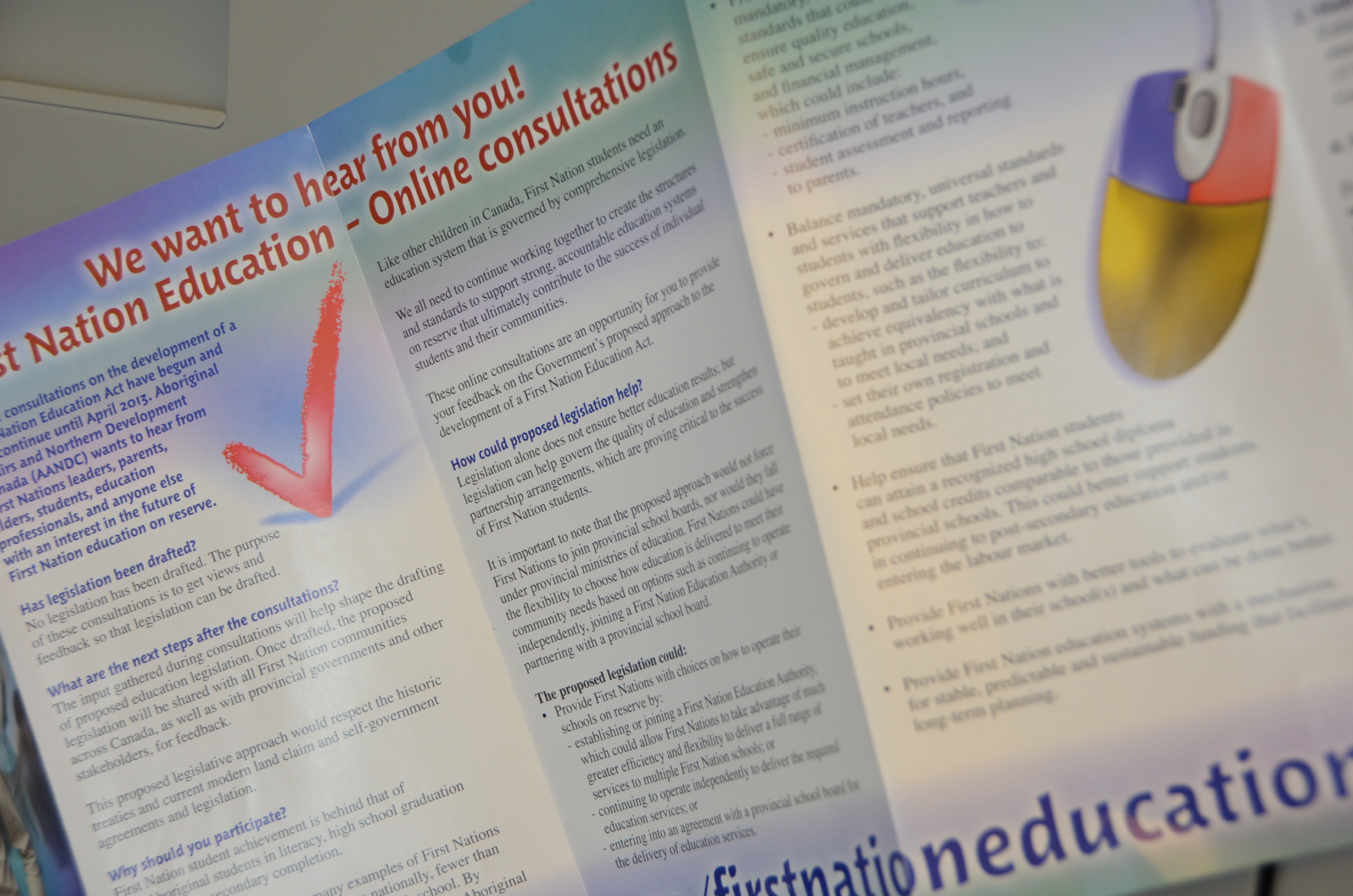Are we asking the right questions?
I recently received a pamphlet from the federal government in my home mailbox titled “First Nation Elementary and Secondary Education Consultations” announcing an effort to seek citizen input into Aboriginal education on reserves. This is an area covered by the federal government whereas for other populations, education is a provincial matter. The hope is for proposed legislation to improve educational opportunities for Aboriginal children and youth. To quote from the brochure, “We all need to continue working together to create the structures and standards to support strong, accountable education systems on reserve that ultimately contribute to the success of individual students and their communities”. As a long-time educator I applaud efforts to increase accessibility to quality education but the brochure got me thinking about other areas the government might seek consultation about regarding Aboriginal peoples.

The Toronto Star has run an excellent, but disturbing, series called “Unequal Justice” that cites data on the rate of incarceration among Aboriginal people that should shock us. It’s worth a read. For example, Aboriginal boys make up just 2.9% of the general population, but 15% of admissions into custody. That’s 5 times higher than the rate of other young males. Black youth are incarcerated at a rate of 4 times more than the general population. For white and other ethnic youth there is no such increase. The Star series provides an excellent snapshot of current data to cause one to ask some basic questions about our justice system. It reminds me of the quote from the 60’s: Is it justice or “just us’?
The picture is even more disturbing for Aboriginal girls who have an admission and incarceration rate 10 times higher than other females in the general population. And this trend rises while the rate of crime is declining overall. Think about that for a moment…. We are putting more people in jail even though fewer crimes are being committed. And, those we incarcerate at higher rates tend to be non-whites. Are we supposed to believe that some people are genetically predisposed to committing more crime? Now, that would indeed be wacky science and we’ve been down that road too many times in our human history already. No, genetics is not the reason. The reason is rooted in society being reactive rather than proactive. Instead of allowing conditions to reach crisis proportions before we notice them we should all be engaged in fostering those conditions that support the needs of all people in Canada. Only that will lead to lower incarceration rates overall, and, specifically for populations that are over represented in our justice system.
In adult jails, the rate of incarceration for Aboriginal peoples is 6 times higher and 4 times higher for persons of colour than that of other populations. In reading this your first thought may be, “wow, that’s a lot of victims out there”. There is no victimless crime and no-one should diminish their suffering. But, would there be so many victims if the system wasn’t so broken? Shouldn’t we be looking at how we got here and how to prevent it from here?
I have never received a brochure from the government asking me for my input on why we incarcerate some members of our society more than others. I have never received a brochure asking my opinion on living conditions on reserves. I have never received a brochure seeking my views on treaty rights. I have never been asked about how we treat prisoners in regards to double-bunking, reduced educational opportunities or counselling services while incarcerated. It kind of begs the question then… why I am being asked only about educational opportunities provided to Aboriginal youth?
Sure, good education will help mitigate against one of the major root causes of crime, and I applaud that. But so will good housing, safe water, help for mental health and addictions and so on.
All of which leads me to wonder whether we are asking the right questions. By focusing only on education are we turning the light away from all of the other life issues that work against public safety? Multiple problems need multiple and integrated solutions.
I am waiting for the brochure to enter my mail box that will not piecemeal the issues but provide me with an honest to goodness comprehensive picture about the root causes that put some populations are at a social disadvantage for which we all pay dearly in reaction, and more importantly how we can go about changing that.
Now, THAT would be a consultation worth having.
Author: Frank Johnson is a regular guest writer for Smart on Crime in Waterloo Region. Frank is a retired principal with the local Catholic school board, a dad, and sometimes runner who possesses an irreverent sense of humour that periodically gets him in trouble. He lives in Waterloo, Ontario.
Frank Johnson’s writing reflects his own opinions and do not necessarily reflect the views or official positions of the Waterloo Region Crime Prevention Council.
